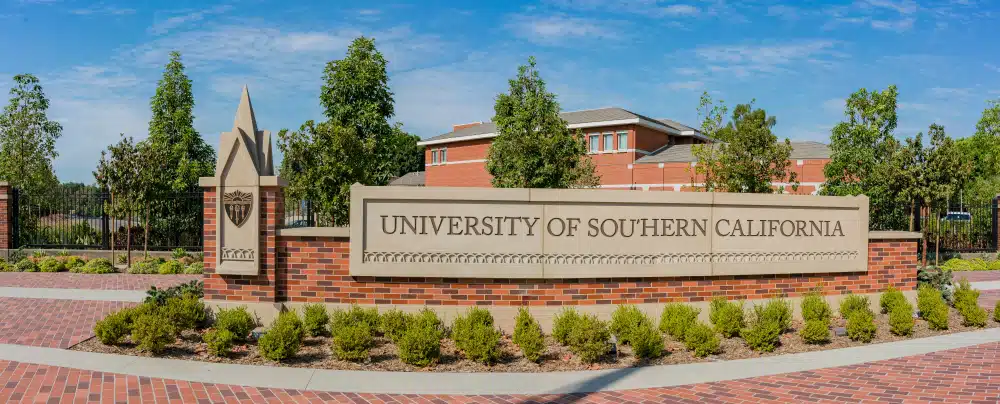USC Early Action and Regular Decision Notification Dates Class of 2028
Understanding the USC Early Action and Regular Decision notification dates is crucial for students planning to apply for the Class of 2028. These dates are key milestones in the journey of college admissions, marking when students will learn the outcome of their applications.
As we delve into the specifics of these important dates, it’s essential to keep in mind that while early action offers an earlier decision, it does not bind students to attend if accepted, unlike early decision programs.
USC Early Action Notification Date Class of 2028
For prospective students, understanding USC’s early action notification timeline is a crucial part of the college application process. These dates shape your preparation and response strategies as you navigate your higher education journey.
When Does USC Early Action Come Out?
For the Class of 2028, you can expect to hear back from USC about early action decisions in mid-to-late January 2024. It’s crucial to understand the nature of USC’s early action program. Unlike early decision programs at some other universities, USC’s early action is non-binding.
This means that if you’re accepted under early action, you’re not obliged to commit to USC and are free to consider offers from other institutions. This flexibility gives you a significant advantage, allowing you to compare financial aid offers, visit campuses, and make the most informed decision about your future without the pressure of a binding commitment.
This timeline benefits you by providing early insight into your college options. An early acceptance can offer significant relief and assist in planning your senior year. If the news isn’t what you hoped for, it still gives you plenty of time to explore other options and prepare applications for other institutions, if needed.
What Time Does USC Early Action Come Out?
The specific timing of USC’s early action notifications for the Class of 2028 remains to be determined. Historically, USC has released these notifications during business hours, Pacific Time—something to keep in mind if you’re in a different time zone.
Without a fixed time for decision releases, you should regularly check your email and USC’s admission portal around the expected date. Notifications could arrive at any point during the day, so staying alert ensures you don’t miss the crucial moment when your results become available.
This uncertainty about the exact time can be stressful, but it also offers a chance to practice patience and maintain a balanced perspective. During this period, staying engaged in your current activities and not becoming overly fixated on the notification is beneficial. It’s also wise to keep open communication with your guidance counselors or mentors for support and advice during this waiting period.
USC Regular Decision Notification Date Class of 2028
Several key dates mark your journey to college admission. One of the most significant dates for many students aiming to join USC’s Class of 2028 is its regular decision notification date. Unlike early action, the regular decision is the standard application process that most college applicants use. It gives you more time to perfect your applications, secure letters of recommendation, and improve your standardized test scores if necessary.
When Does USC’s Regular Decision Come Out?
USC plans to announce its regular decision results on April 1, 2024. This date is crucial in the college admission calendar, marking a period of both anticipation and anxiety for thousands of applicants. It aligns with the typical college admission cycle, giving you ample opportunity to thoughtfully complete your applications and submit any required supplemental materials. This window also allows for adjustments based on early action or early decision outcomes from other universities.
USC’s regular decision process is known for its holistic approach to evaluating applications. The admissions committee considers a broad range of factors beyond academic scores, such as extracurricular activities, personal essays, and letters of recommendation. This comprehensive review process ensures that they evaluate each applicant in a manner that reflects their unique talents and potential contributions to the USC community.
Understanding the timeline of the regular decision process is crucial for you as an applicant. The months leading up to April 1 are often filled with anticipation. During this period, it’s important for you to stay focused on your current academic responsibilities and extracurricular commitments. Staying engaged and maintaining good grades is crucial, as some colleges may request mid-year reports or final transcripts before finalizing their admission decisions.
What Time Does USC’s Regular Decision Come Out?
USC has not announced a specific time for releasing regular decision notifications for the Class of 2028. The uncertainty about the exact time can add to the anxiety of waiting students. However, remember that college admission decisions involve a complex process of carefully reviewing thousands of applications.
Notifications may come out at any time during the day, so you should monitor your email and the USC admission portal for updates. The use of an online portal for admission notifications is common among universities, providing a quick and efficient way to communicate with applicants. Make sure your contact information is up-to-date and that you have access to the email account associated with your USC application.
In preparation for decision day, you should plan for various outcomes. While hoping for a positive response is natural, being prepared for any scenario is important. This might involve considering alternate colleges or universities, understanding potential waitlist procedures, or exploring gap year options.
The period leading up to the USC regular decision notification date is a time of significant personal growth for many students. It involves reflecting on past achievements and considering future aspirations. Regardless of the outcome, the process itself is a valuable experience, teaching you resilience, patience, and the importance of maintaining a balanced perspective.
How Does USC Notify Acceptance?
The University of Southern California (USC) informs applicants about their acceptance through a well-structured notification system. For USC’s Class of 2028, both early action and regular decision applicants can expect to receive their notifications on specific dates set by the university. This process ensures that all applicants are timely and clearly informed about their admission status, reducing the anxiety that often accompanies the waiting period.
The Role of Email in USC’s Notification Process
USC primarily uses email to communicate with applicants. When USC makes a decision, it alerts applicants via email that they have updated their admission status. This email typically directs you to the USC admission portal to view the official decision. It’s essential for you to provide an accurate and regularly checked email address in your application, as USC relies on this as the main communication method.
The timing of these emails can vary, and sometimes they may land in spam or junk folders. Therefore, it’s advisable for you to regularly check these folders, especially around the decision release dates. Remember, receiving this email is just the beginning of a journey that could shape your next few years.
USC Admission Portal: A Central Hub for Applicants
The USC admission portal is vital for applicants. You create an account during the application process, and this portal then becomes your central hub for all USC admissions-related activities. On decision day, you can log in with your established credentials to see your admission status.
Beyond the admission decision, the portal offers detailed information about the next steps for admitted students, including acceptance procedures, financial aid details, and orientation and housing. If you’re not offered admission, the portal may provide feedback or information on alternative options, like waitlist procedures or future term applications.
This digital platform also allows you to update personal information, submit additional required documents, and communicate with the admissions office. It’s a dynamic space that keeps you engaged and informed throughout the admissions cycle and beyond.
After the Admission Decision: Next Steps
After receiving your admission decision, your journey continues. If admitted, the decision email and portal will guide you through accepting the offer. This involves meeting critical deadlines for decision acceptance, deposit submission, and other steps to secure your place at USC.
USC often invites admitted students to attend events, either on campus or virtually. These events provide an opportunity to learn more about the university, meet future classmates, and ask questions about campus life, academics, and available resources.
For students not offered admission, the portal often provides resources and guidance for the next steps, including how to strengthen an application for future consideration or details on transfer admission processes.
USC’s approach to notifying acceptance combines direct email communication and comprehensive use of its admission portal. This dual strategy ensures you are well-informed and supported throughout the post-decision phase, regardless of the outcome, reflecting USC’s commitment to clear and consistent communication with applicants.
Preparing for USC’s Decision: Tips and Strategies
The wait for a university’s decision can often feel as intense as the application process itself. After submitting transcripts and essays and meeting deadlines, you find yourself in a phase of anticipation, eager to hear back from the University of Southern California. During this time, maintaining focus and positivity is crucial, as the admissions process’s outcome is just one step in your larger educational journey.
Maintaining Academic Engagement
While awaiting USC’s decisions, it’s imperative for you to stay academically engaged. This involves not just keeping your grades up but also actively participating in class, tackling challenging projects, and continuously nurturing your intellectual curiosity. Keeping a strong academic record is vital, as it prepares you for the rigor of college-level studies, regardless of the admission outcome.
Pursuing Extracurricular Passions
Extracurricular activities are not only a crucial part of your application but also avenues for personal growth and stress relief. Whether it’s sports, the arts, volunteer work, or a part-time job, these activities offer a constructive outlet for your energy and emotions. They also help you develop leadership and teamwork skills, which are invaluable in any educational setting.
Exploring Alternative Paths
- Researching Other Universities: While USC might be your top choice, considering other universities is a wise strategy. Explore institutions that align with your academic and personal goals. Understanding different universities’ offerings and campus cultures broadens your perspective and aids in making informed decisions if USC doesn’t offer admission.
- Preparing a Plan B: Developing a Plan B is practical if USC’s decision is not in your favor. This might involve looking into schools with later application deadlines, considering community college options, or thinking about a gap year. Having a well-thought-out alternative plan eases the anxiety associated with waiting and gives you control over your educational journey.
Cultivating a Healthy Mindset
- Managing Expectations and Stress: Waiting for a decision can be stressful, but managing your expectations realistically is important. Understand that college admissions can be unpredictable, and a rejection is not a reflection of your worth or potential. Engaging in stress-relief activities, maintaining a healthy lifestyle, and seeking support from family, friends, or counselors can be immensely helpful.
- Reflecting on Personal Growth: Finally, use this period for reflection—not just about your future but also about the growth and achievements you’ve made so far. Regardless of the outcome, applying to a university like USC is an accomplishment, marking a significant milestone in your academic journey.
Preparing for USC’s decision involves more than just waiting; it’s a time for continued academic engagement, exploring other options, and cultivating a balanced and healthy mindset. By focusing on these areas, you ensure you’re well-prepared for whatever decision comes your way.
Understanding USC’s Admission Process
For the Class of 2028, USC has set specific notification dates for both early action and regular decision applicants, a crucial detail for those navigating the competitive admission process. As the dates draw nearer, this becomes even more critical.
Recognized globally for prestigious programs and vibrant campus life, USC attracts thousands of applications each year, making its admissions process highly competitive. But how can you stand out in such a crowded field? Let’s find out!
Holistic Review: More than Just Numbers
USC characterizes its admission process by a holistic review. This strategy goes beyond traditional metrics like GPA and standardized test scores, weighing and considering every aspect of your application. While academic achievements are crucial, they represent just one part of the larger puzzle. USC’s admissions officers seek students who demonstrate intellectual curiosity, a commitment to personal growth, and the potential to contribute meaningfully to the campus community.
The Role of Extracurricular Activities
Extracurricular activities significantly impact USC’s holistic review process. The university values applicants who demonstrate leadership, initiative, and sustained commitment to interests outside the classroom. Whether through sports, the arts, community service, or clubs, these activities offer insights into your passions and skills. USC looks for individuals who excel in these areas and use their platforms to positively impact their communities.
Leadership Experiences: Shaping Tomorrow’s Leaders
USC highly values leadership. The university seeks evidence of your leadership potential in various forms. It could be leading a sports team or a student organization, spearheading a community project, or taking initiative with family responsibilities. Your ability to handle responsibilities, work collaboratively, and lead with integrity and vision is what USC looks for.
The Power of Personal Essays
Personal essays are a crucial component of USC’s application. They provide you with a platform to express your unique voice, share your story, and articulate your aspirations. A well-crafted essay makes a significant impact, offering a glimpse into your personality, thought process, and fit for USC’s community. USC’s admissions officers look for essays that are well-written, authentic, reflective, and insightful.
Letters of Recommendation: A Window into Your World
Letters of recommendation are another vital part of USC’s holistic review. Typically written by teachers, counselors, or mentors, these letters provide a third-party perspective on your academic abilities, character, and potential. USC values recommendations that are specific, detailed, and illustrative of your qualities and achievements.
Balancing the Components
In USC’s admissions process, no single component of your application is decisive on its own. The admissions committee seeks candidates who exhibit excellence across various domains. This comprehensive approach ensures that those admitted to USC are academically capable and poised to thrive in the university’s dynamic environment and contribute to its diverse community.
Understanding USC’s admission process requires recognizing that it’s a multifaceted assessment aimed at identifying students who will not only succeed academically but will also enhance the university’s community. You should focus on presenting a well-rounded application that reflects your academic achievements, extracurricular involvement, leadership experiences, and personal character, all integral to making a strong impression on the USC admissions committee.
Changes in Admission Trends and Their Impact
In the dynamic world of college admissions, it’s essential for you, as an aspiring student, to keep up with the latest trends and changes. Particularly in the last few years, significant shifts have occurred in how universities, including the University of Southern California (USC), handle their admissions processes. These changes not only affect how you prepare your application but also how universities review them and make their decisions.
The Rise of Test-Optional Policies
A key change in recent years is the widespread adoption of test-optional policies. The COVID-19 pandemic made traditional college entrance exams like the SAT and ACT logistically challenging. This situation led many institutions, USC included, to reconsider their reliance on standardized test scores. The test-optional movement wasn’t entirely new, though. It had been gaining ground even before the pandemic, driven by a broader conversation about equity and access in higher education.
With this shift to test-optional policies, universities now focus more on a holistic review process. They give greater weight to other aspects of your application, like your high school GPA, letters of recommendation, extracurricular activities, and personal essays. This approach aims to evaluate your talents, experiences, and potential contributions to the university community, not just your test scores.
Impact on Your Applications and University Decisions
Moving to test-optional admissions has several impacts. Firstly, it encourages a more diverse range of applicants. If you were hesitant to apply to top-tier universities due to your test scores, you now have the confidence to apply. This increase in application diversity is a positive step toward inclusivity, but it also leads to a more competitive environment. Now, more students compete for the same number of spots.
On the university side, this change requires a new approach to evaluating students. Admissions teams at USC and similar institutions now delve deeper into each application, assessing your potential from various angles. This emphasis on a comprehensive review can potentially extend the admissions process, as it takes more time to thoroughly evaluate each application.
The Broader Implications for College Admissions
These shifts in admissions policies are part of a larger dialogue about what constitutes merit and potential in higher education. Moving away from a heavy reliance on standardized test scores, universities are recognizing that intelligence, potential, and suitability for higher education are complex and cannot be fully captured by a single test score.
Additionally, this shift signals a growing awareness among higher education institutions of their role in fostering a diverse and inclusive student body. By adopting more holistic admission practices, universities like USC are widening their doors, offering opportunities to students from varied backgrounds and life experiences.
Looking Ahead: The Future of College Admissions
Looking to the future, it’s clear that the college admissions landscape will continue to evolve. The lessons learned from these recent changes, particularly regarding equity and comprehensive evaluation, are likely to influence admissions policies in the years ahead. As a student navigating this landscape, staying informed and adaptable is crucial. As universities like USC adapt to these changes, you too must be prepared to navigate the new complexities of the college admissions process.
Conclusion
As we wrap up this guide on the USC early action and regular decision notification dates for the Class of 2028, it’s important to remember that the college admission process is a journey filled with anticipation and opportunities. While awaiting USC’s decisions, students should remain engaged in their current academic and extracurricular pursuits and keep an open mind about all the possibilities that lie ahead.











































